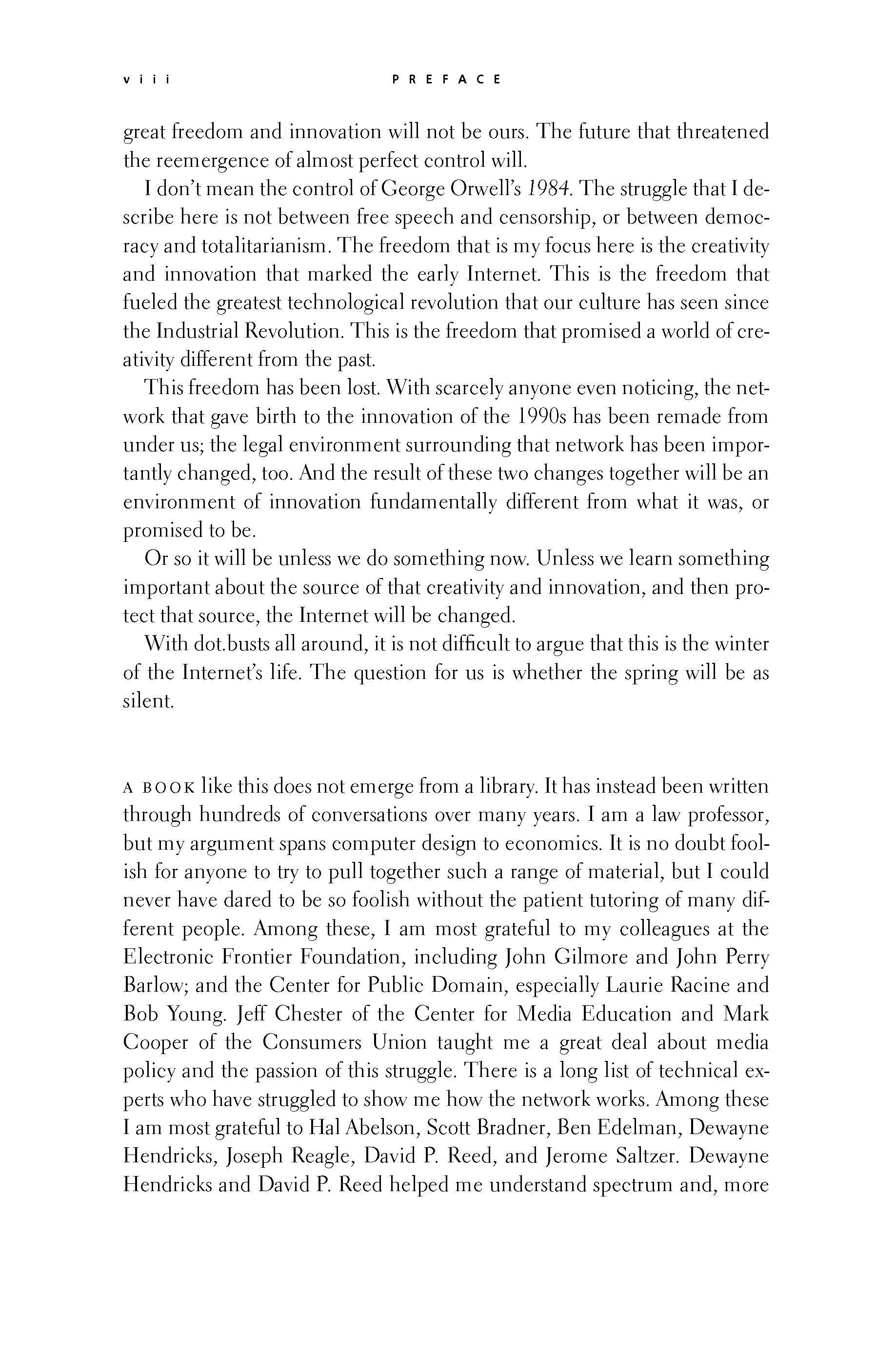 f007 _
-chap- _
toc-1 _
f008w _
toc-2 _
+chap+ _
f009
f007 _
-chap- _
toc-1 _
f008w _
toc-2 _
+chap+ _
f009
great freedom and innovation will not be ours. The future that threatened
the reemergence of almost perfect control will.
I don't mean the control of George Orwell's _1984._ The struggle that I de-
scribe here is not between free speech and censorship, or between democ-
racy and totalitarianism. The freedom that is my focus here is the creativity
and innovation that marked the early Internet. This is the freedom that
fueled the greatest technological revolution that our culture has seen since
the Industrial Revolution. This is the freedom that promised a world of cre-
ativity different from the past.
This freedom has been lost. With scarcely anyone even noticing, the net-
work that gave birth to the innovation of the 1990s has been remade from
under us; the legal environment surrounding that network has been impor-
tantly changed, too. And the result of these two changes together will be an
environment of innovation fundamentally different from what it was, or
promised to be.
Or so it will be unless we do something now. Unless we learn something
important about the source of that creativity and innovation, and then pro-
tect that source, the Internet will be changed.
With dot.busts all around, it is not difficult to argue that this is the winter
of the Internet's life. The question for us is whether the spring will be as
silent.
///\\\
A book like this does not emerge from a library. It has instead been written
through hundreds of conversations over many years. I am a law professor,
but my argument spans computer design to economics. It is no doubt fool-
ish for anyone to try to pull together such a range of material, but I could
never have dared to be so foolish without the patient tutoring of many dif-
ferent people. Among these, I am most grateful to my colleagues at the
Electronic Frontier Foundation, including John Gilmore and John Perry
Barlow; and the Center for Public Domain, especially Laurie Racine and
Bob Young. Jeff Chester of the Center for Media Education and Mark
Cooper of the Consumers Union taught me a great deal about media
policy and the passion of this struggle. There is a long list of technical ex-
perts who have struggled to show me how the network works. Among these
I am most grateful to Hal Abelson, Scott Bradner, Ben Edelman, Dewayne
Hendricks, Joseph Reagle, David P. Reed, and Jerome Saltzer. Dewayne
Hendricks and David P. Reed helped me understand spectrum and, more
[[viii]]
f007 _
-chap- _
toc-1 _
f008w _
toc-2 _
+chap+ _
f009